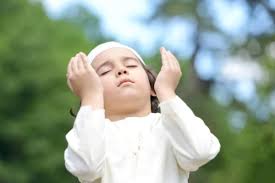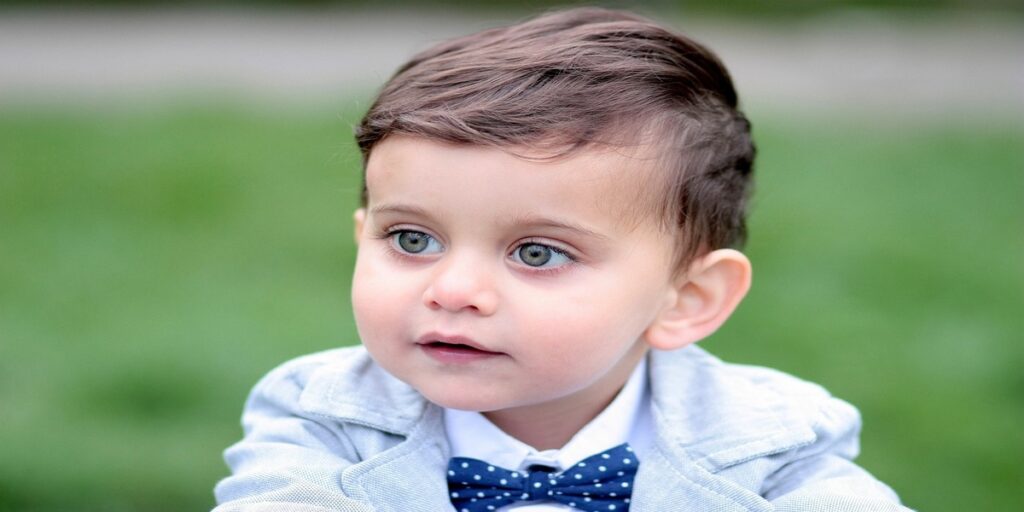Table of Contents
Muslim Boys Names
Muslim boys names

Introduction to Muslim boys names
Muslim boys’ names are a reflection of Islamic values and history, carrying with them deep meanings and significance. These names are often chosen based on their connection to prophets, companions, and righteous figures, as well as the noble qualities they represent. In Islamic culture, a name is more than just a label; it is a symbol of identity and a hope for the child’s future.

| popularity | English name | Urdu name | Meaning |
| 1 | Muhammad | محمد | تعریف کی گئی |
| 2 | Ahmad | احمد | زیادہ تعریف کیا جانے والا |
| 3 | Ali | علی | بلند، عظیم |
| 4 | Hassan | حسن | خوبصورتی، اچھائی |
| 5 | Husain | حسین | خوبصورت، دلکش |
| 6 | Umer | عمر | طویل عمر، زندگی |
| 7 | Yousaf | یوسف | اللہ کا سچا پیغامبر |
| 8 | Adil | عادل | انصاف پسند، منصف |
| 9 | Zain | زین | زینت، خوبصورتی |
| 10 | Aleem | علیم | علم والا، دانا |
| 11 | Tariq | طارق | ستارہ، روشنی |
| 12 | Rehman | رحمان | بے پناہ رحم کرنے والا |
| 13 | Mosa | موسیٰ | انی سے بچانے والا، نبی |
| 14 | Salman | سلمان | محفوظ، محفوظ رہنے والا |
| 15 | Isamil | اسماعیل | اللہ نے سنا، پیغامبر |
| 16 | Ibrahim | ابراہیم | والد، باپ |
| 17 | Khalid | خالد | ہمیشہ زندہ، ابدی |
| 18 | Bilal | بلال | پانی، خوبصورتی |
| 19 | Shahid | شاہد | گواہ، مشاہد |
| 20 | Asif | آصف | فہمی، عقل مند |
| 21 | Saeed | سعید | خوش، خوش قسمت |
| 22 | Akram | اکرم | ہت زیادہ عزت دینے والا |
| 23 | Mudassir | مدثر | ملبوس، پوشیدہ |
| 24 | Abid | عابد | عبادت کرنے والا |
| 25 | Abbas | عباس | ہادر، دلیر |
| 26 | Hafiz | حفیظ | محافظ، محفوظ رکھنے والا |
| 27 | Jawad | جواد | سخی، فیاض |
| 28 | Ubaid | عبید | وفادار، خادم |
| 29 | Hasnain | حسنین | حسن کے جمع، خوبصورتی |
| 30 | Mahmood | محمود | تعریف کیا گیا، سراہا گیا |
| 31 | Rashid | راشد | ہدایت یافتہ، عقل مند |
| 32 | Fasial | فیصل | فیصلہ کرنے والا، منصف |
| 33 | Shakeel | شکیل | خوبصورت، پرکشش |
| 34 | Saleem | سلیم | امن والا، محفوظ |
| 35 | Zafar | ظفر | فتح، کامیابی |
| 36 | Akbar | اکبر | سب سے بڑا، عظیم |
| 37 | Mubashir | مبشر | وشخبری دینے والا |
| 38 | Abdullah | عبداللہ | اللہ کا بندہ، خدام |
| 39 | Tahir | طاہر | پاک، صاف |
| 40 | Sami | سمیع | سننے والا، باخبر |
| 41 | Masood | مسعود | خوش قسمت، خوشحال |
| 42 | Fahad | فہد | شیر، بہادر |
| 43 | Qasim | قاسم | تقسیم کرنے والا |
| 44 | Jabir | جابر | ظلم کرنے والا، طاقتور |
| 45 | Amir | امیر | رئیس، مالدار |
| 46 | Haris | حارث | کاشت کرنے والا” یا “کسان“ |
| 47 | Aqrash | اقراش | سب سے زیادہ ذہین“ |
| 48 | Uzair | عزیر | مددگار” یا “اللہ کی طرف سے مدد کیا گی |
| 49 | Zubair | زُبیر | طاقتور” یا “بہادر |
| 50 | Anas | اَنَس | محبت کرنے والا”، “دوست |
FAQs About Muslim Boys’ Names
1. Why are meanings important in Muslim boys’ names?
In Islam, names carry great significance as they are believed to influence a person’s life, character, and destiny. Parents choose names with positive meanings to reflect qualities such as kindness, strength, and piety, hoping these virtues will be present in the child’s life.
2. Are Muslim boys’ names always Arabic?
While many Muslim names are of Arabic origin, due to the Quran being in Arabic, Muslim names can also be derived from Persian, Turkish, African, and other cultures. The key is that the name has a good meaning and aligns with Islamic values.
3. What are some common Muslim boys’ names?
Some popular Muslim boys’ names include:
- Muhammad: Praiseworthy (in honor of the Prophet Muhammad)
- Ali: Noble, exalted
- Ahmed: Highly praised
- Hamza: Lion, strong
- Yusuf: God will increase (inspired by Prophet Yusuf)
4. Can Muslim boys be named after prophets?
Yes, naming boys after prophets is common in Muslim communities. Names like Muhammad, Ibrahim, Isa, and Yusuf are frequently chosen because they reflect a connection to the prophets and their exemplary lives.
5. Is it important to consult religious scholars when choosing a name?
Many families choose to consult religious scholars or elders to ensure the chosen name has a positive and appropriate meaning. Scholars can help avoid names with negative or controversial meanings.
6. Can modern names be used for Muslim boys?
Yes, modern names can be used as long as they have a good meaning and do not contradict Islamic principles. Some families choose modern names with a blend of traditional meanings to honor both cultural and religious values.
7. What should be avoided when choosing a name?
Names with negative meanings, names that are associated with deities or false idols, or names that contradict Islamic beliefs should be avoided. The Prophet Muhammad (PBUH) also discouraged names that imply arrogance or false greatness.
8. Is it common to change a child’s name later in life?
While it is less common, a child’s name can be changed if parents later find out that it has a negative meaning or if there are other reasons to do so. The Prophet Muhammad (PBUH) changed some people’s names during his time to better reflect Islamic values.
9. Can Muslim boys have two names?
Yes, it is common in many Muslim families for boys to have two names, such as a first name and a middle name. The first name may reflect religious significance, while the middle name could honor family tradition or ancestry.
10. Is it necessary to name Muslim boys after Islamic figures?
While many families choose to name their boys after important Islamic figures, it is not mandatory. The essential part is that the name should have a positive and meaningful connotation that aligns with Islamic teachings.

Popular Origins of Muslim Boys’ Names
Muslim boys’ names come from a variety of origins, primarily:
- Arabic: Many names are derived from the Arabic language, reflecting the language of the Quran and Islamic traditions.
- Persian: Some Muslim names have Persian roots, symbolizing cultural connections and historical significance.
- Turkish: Turkish names may also be found among Muslim families, showing the diversity of Islamic culture

Choosing a Meaningful Name
The process of selecting a name often involves considering the meaning, sound, and religious or cultural significance. Names like Muhammad, Ali, and Ahmed are common due to their association with prominent figures in Islamic history. Other names like Zubair (meaning “brave”) or Anas (meaning “friendly”) carry specific virtues and qualities that parents wish to see in their children.
Importance of the Name in Islam
In Islam, the name holds a special place, as it is believed that a name can influence a person’s life and personality. A name with a good meaning is thought to bring blessings and positivity, while a name with negative connotations is generally avoided.
The Importance of Meaning in Names
In Islam, it is believed that names have a direct impact on a person’s life. The Prophet Muhammad (PBUH) emphasized the importance of giving children good names. A name with a strong, positive meaning is seen as a source of blessings (Barakah) and can shape a child’s personality and future. For example, names like Hamza (meaning “lion”) symbolize courage and strength, while Zayd (meaning “growth” or “abundance”) is associated with prosperity and success

Names and Cultural Diversity
Islamic names are not restricted to Arabic origins. With the spread of Islam across various cultures and regions, names of Persian, Turkish, and even African origins have also become common in Muslim communities. For example, Omar (Arabic), Farid (Persian), and Mustafa (Turkish) are names with deep cultural roots, showing the diversity within the Islamic world. Despite the different origins, the common thread is that the meanings of these names often reflect positive attributes like kindness, wisdom, and bravery.



